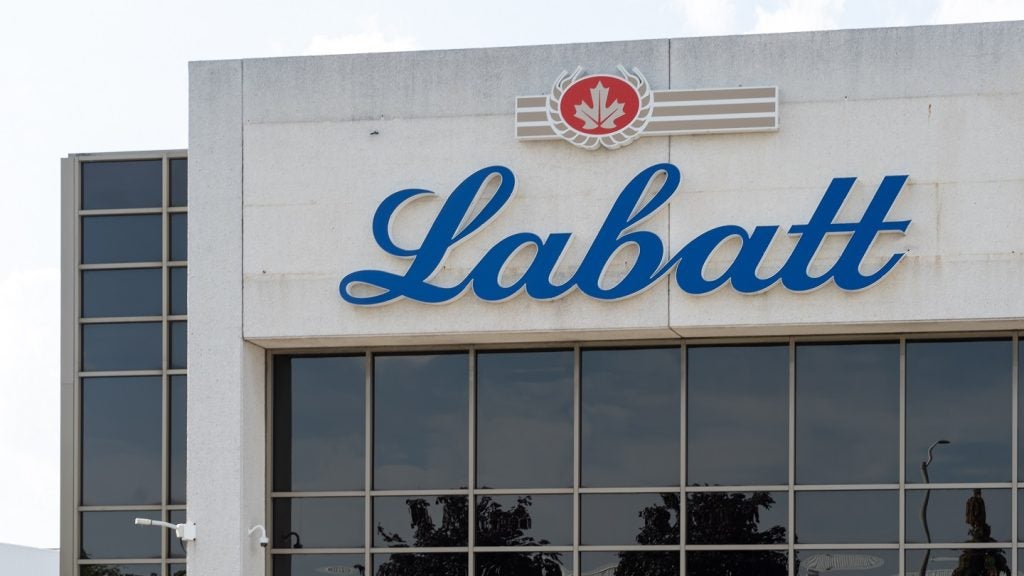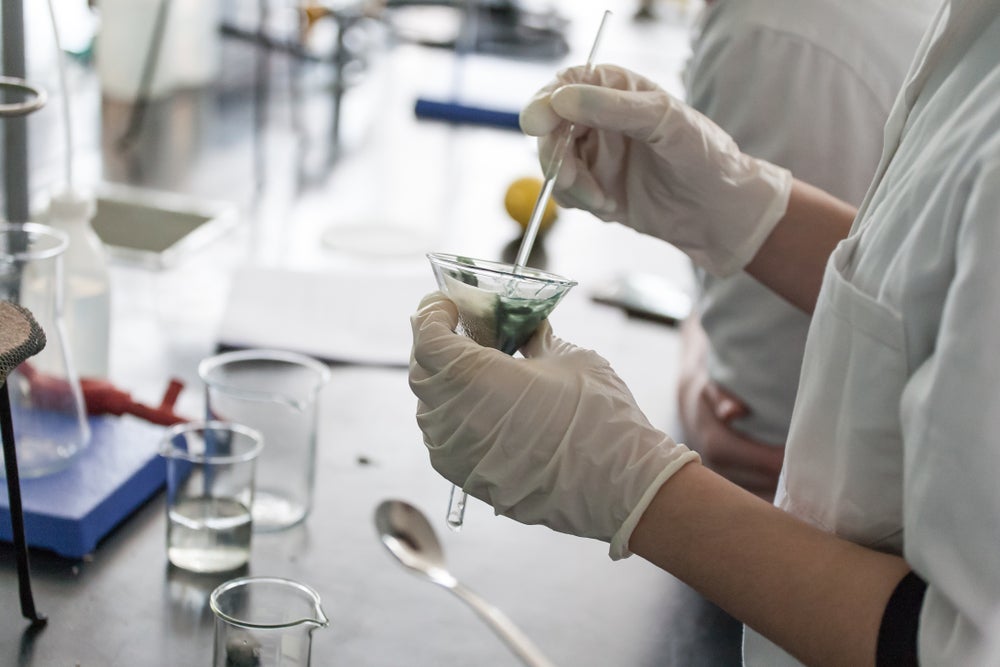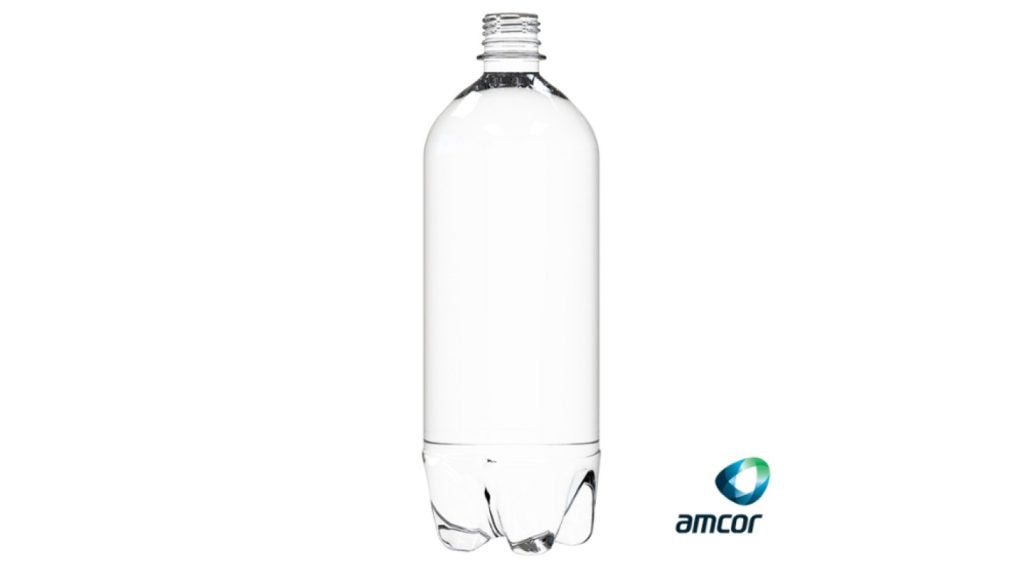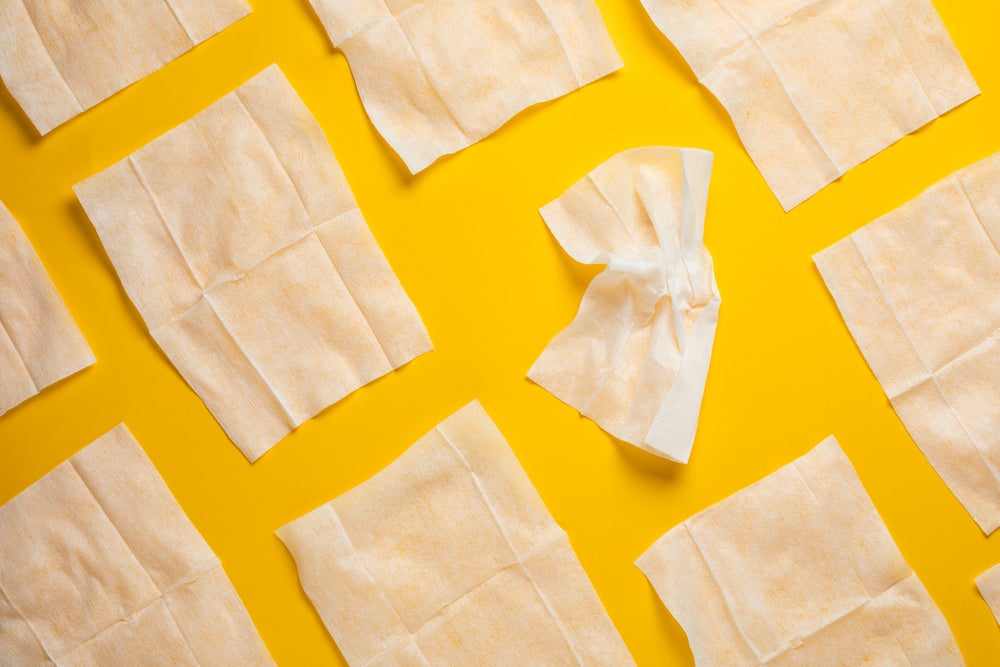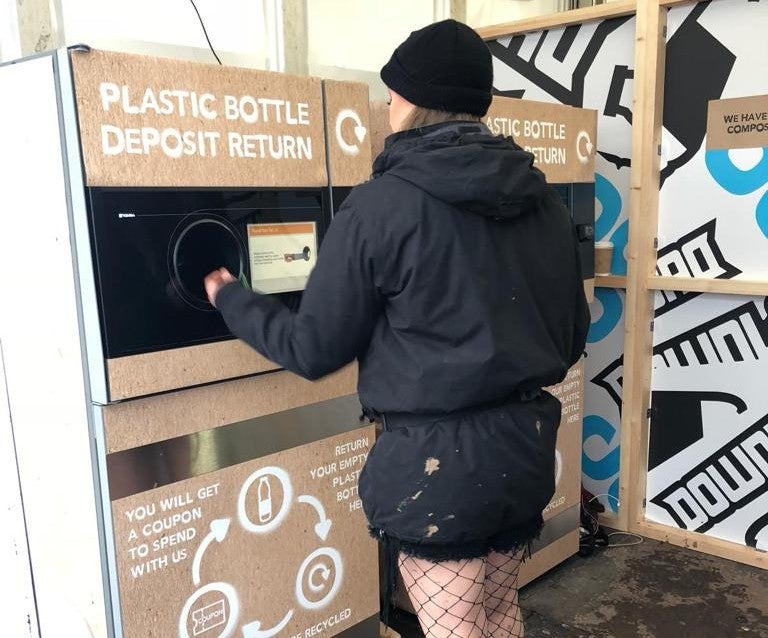
Norwegian multinational recycling solutions corporation TOMRA has partnered with UK retailer Co-op to improve festival sustainability by launching a deposit-return scheme (DRS) trial with reverse vending machines at Co-op pop-up stores at seven major UK music festivals this summer.
The DRS trial already saw machines installed at Download and Isle of Wight festivals last month. The reverse vending machines will now be available at Latitude festival in July and Creamfields, Belladrum, Reading and Leeds festivals in August.
To participate in the trial, festival-goers pay a mandatory 10p deposit when they purchase plastic bottles of up to two litres in size at Co-op pop-up stores. Customers can then use the machines, located in a recycling room within the pop-ups, to return empty bottles for recycling.
Customers will get their deposit back in the form of a voucher to spend in the on-site stores. They can alternatively choose to donate their 10p deposit to UK-based independent environmental charity Keep Britain Tidy, with any surplus deposits also being donated.
The reverse vending machines accept deposits of plastic bottles, whether bought from Co-op or not.
How well do you really know your competitors?
Access the most comprehensive Company Profiles on the market, powered by GlobalData. Save hours of research. Gain competitive edge.

Thank you!
Your download email will arrive shortly
Not ready to buy yet? Download a free sample
We are confident about the unique quality of our Company Profiles. However, we want you to make the most beneficial decision for your business, so we offer a free sample that you can download by submitting the below form
By GlobalDataDRS schemes continue to be an important recycling topic for the UK Government. Recently, Westminster completed its consultation period on how a UK-wide DRS might look and the Scottish Government introduced a DRS to collect a £0.20 surcharge from customers buying drinks packed in aluminium and steel cans, as well as bottles made of glass and PET plastic.
Plastics recycling charity RECOUP’s recent Deposit Return Schemes in Action case study revealed that if DRS were introduced in the UK, the collection and recycling of non-drinks packaging would need to be transformed to meet future circular economy goals.
TOMRA managing director Truls Haug said: “Ahead of the formal introduction of a DRS in Scotland and the rest of the UK, this represents a great opportunity for music fans to experience for themselves the ease and simplicity of reverse vending and deposit return.
“We are delighted to be supporting these great events and to have the chance to boost their sustainability credentials, while hopefully promoting good recycling habits for the future.
“TOMRA believes that a well-designed DRS is the perfect example of a working circular economy. The system reduces waste ending up in landfills or nature and ensures containers can be recycled back into bottles and cans.”
TOMRA said it has already operated several DRS trials with retailers across the UK and is prepared to support businesses as they prepare for the introduction of a DRS.
Co-op partnership manager Alasdair Fowle said: “We’re really happy to be working with TOMRA to bring reverse vending machines to our festival shops this year, and have created a recycling room just for them. The activity will really help us to understand how consumers use and react to the machines and it’s great to know that the bottles posted into these festival machines, will then be recycled into Co-op own brand water bottles.”
How is festival sustainability being promoted this season?
The UK’s largest festival Glastonbury Festival has been working towards improving sustainability within its team and attendees. This year, the festival partnered with Co-op to sell sandwiches 100% compostable packages. It also encouraged attendees to cut down on single-use packaging by banning the sale of single-use plastic drinks bottles. Attendees were urged to use reusable water bottles and refill them for free at the many water taps and WaterAid kiosks throughout the event.
This year, Glastonbury processed 45 tonnes of aluminium cans on site, with 4,500 litres of cooking oil also turned into biofuel and around 40% of attendees travelled to the Festival using public transport.
English broadcaster and natural historian Sir David Attenborough also took to the Pyramid stage to praise Glastonbury and its attendees for going plastic free. He said: “And now this great Festival has gone plastic free. That is more than a million bottles of water that has not been drunk by you in plastic – thank you.”




